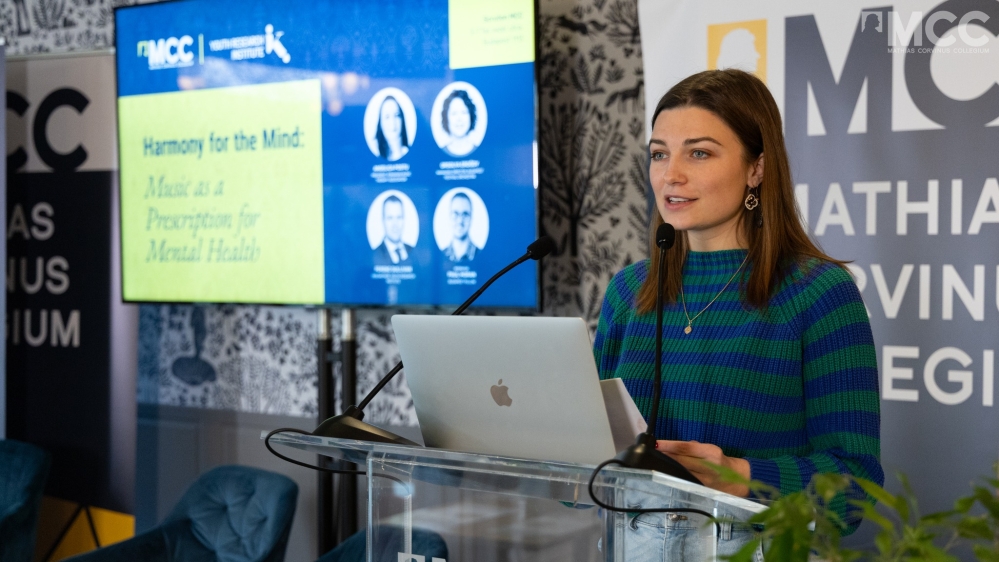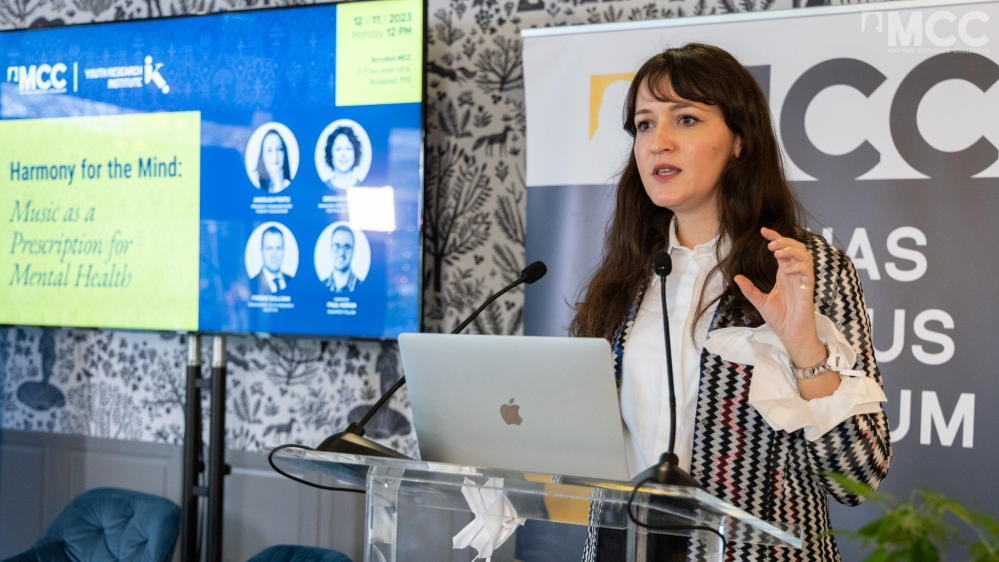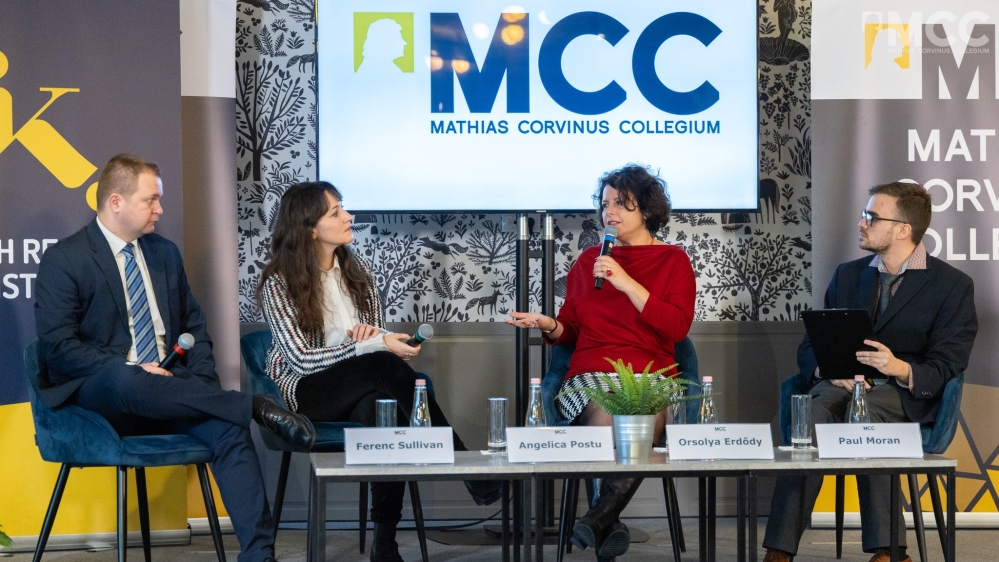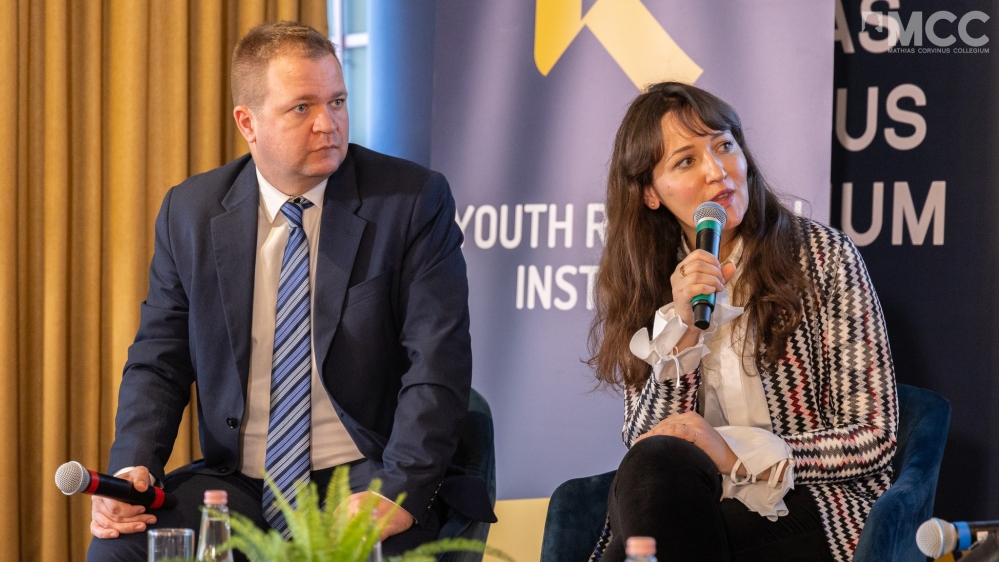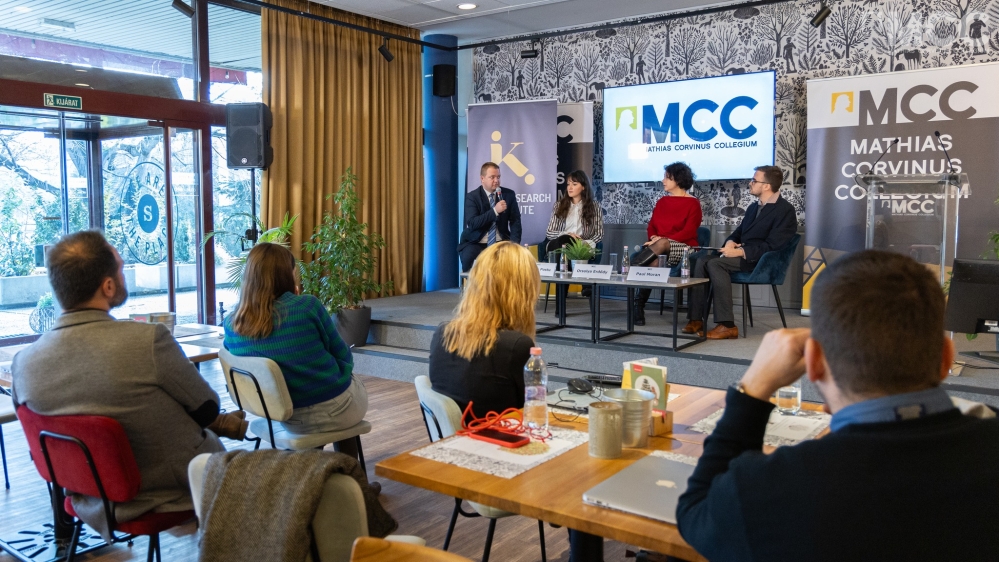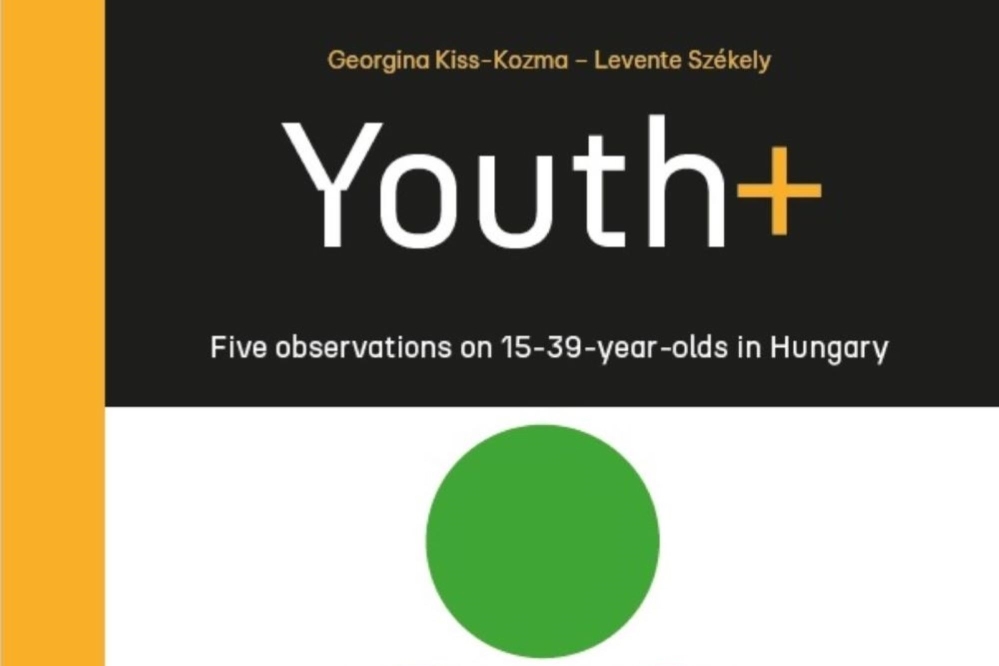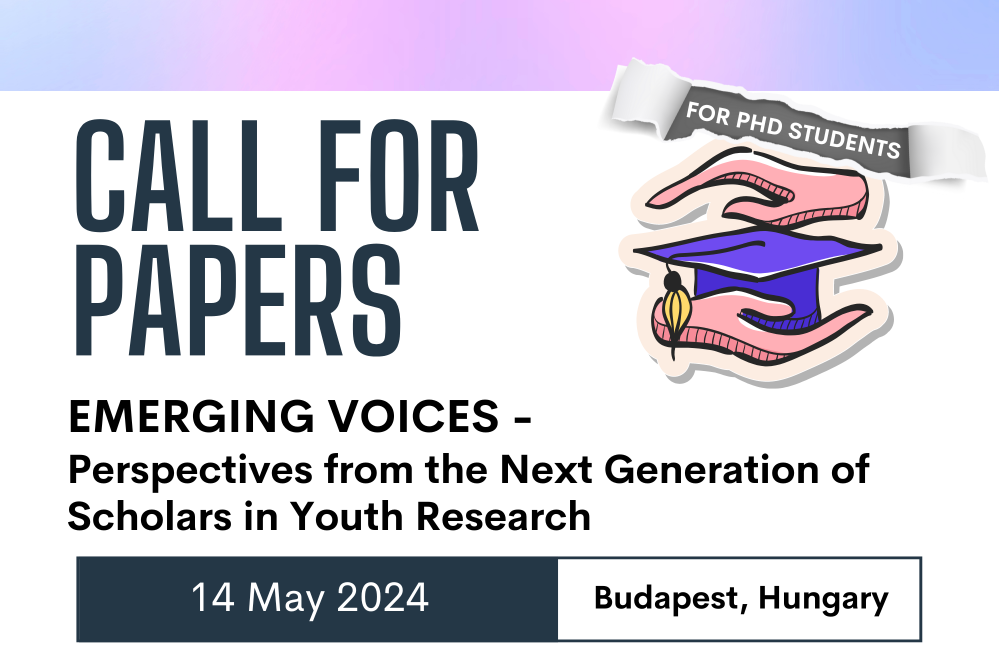Angelica Postu, founder and president of the Romanian Music Therapy Association, visited the Youth Research Institute to discuss her work, research, and how it overlaps with the Youth Research Institute’s findings.
While she is a practicing music therapist at the Charité Universitätsmedizin (University Clinic) of Berlin, she has made it her pursuit to properly establish music therapy as a mainstream treatment as well as career path. In her presentation, she explains the background and basis of using music as a therapeutic tool: by identifying when and how humans perceive music and the emotions these bring about, we can gain insight on our well-being. She discussed the advantages of implementing creative therapies; not only does it have a myriad of preventative effects and can be utilized in some form for almost anyone, but it is also an especially cost-effective form of therapy. On the topic of technological developments in music, Angelica Postu highlighted the importance of concrete instruments as opposed to synthesizers or AI tools. Without actual instruments, people miss out on most of the benefits of music on our well-being. Moreover, the playing and creation of instruments themselves serves as big part of the creative process. Another point to consider is that the spread of streaming platforms and algorithm-listening has taken away from the full artistic experience of listening to full CDs and songs from a given performer.
Following her presentation, Angelica was joined in a round table panel with Youth Research Institute Fellow Ferenc Sullivan and Managing Director at Budapest Festival Orchestra, Orsolya Erdődy. The moderator of their discussion was Paul Moran, visiting Budapest Fellow at MCC. They started out their panel looking at the worth and role of music in our modern world: we can take it wherever we go, listen to just about whatever we want whenever we want, and it is all largely globally accessible. Orsolya Erdődy highlighted how the world around us in general has become noisier and it is more difficult to find time and an appropriate environment to concentrate on listening to music itself. Angelica was rather optimistic in pointing out that despite the world changing, people continue to create instruments and pursue the search for sound and music. Ferenc took the opportunity to highlight the latest results from the Youth Research Institute’s (YRI) study regarding concerts and music: across the board, young people are retreating from public spaces, attending fewer concerts even though they have grown in popularity. However, young people are consuming music in different ways. Paul Moran then turned the focus onto the genre of classical music and how it connects to music therapy. Orsolya recalled that in the past years since the covid pandemic, the elderly have become even more connected to their classical music groups and utilized it as a route to process the loss of loved ones who they may have attended with before. The Budapest Festival Orchestra also holds specialized concerts for children with autism and other learning disabilities. Angelica highlighted one of her latest projects which was organizing a series of concerts for mothers and their newborns: the musicians played lullabies while the mothers were encouraged to walk around, soothe their babies, breastfeed etc, while enjoying the music. In terms of business opportunities, Ferenc again referenced a recent finding from the YRI: classical music fans tend to be highly educated females from urban areas. Angelica went on to discuss the process of music therapy in more detail; she explained how it is a very individualistic experience for each client. Therapists begin by identifying a patient's reactions to different types of music and their overall interests. In fact, that is what she finds is one of the most advantageous aspects of music therapy: there is very little judgement involved, patients do not feel critiqued, because everyone is entitled to their own musical tastes, it is simply a matter of preference.
As a closing thought, participants reflected on the impact of AI and AI-powered tools in writing and creating music. Angelica summarized her thoughts by saying that “we created AI, but AI does not know us.” We are not currently aware of the full impact AI can or will have on music and the music industry, but it can serve as a tool to help us explore the world of music.


